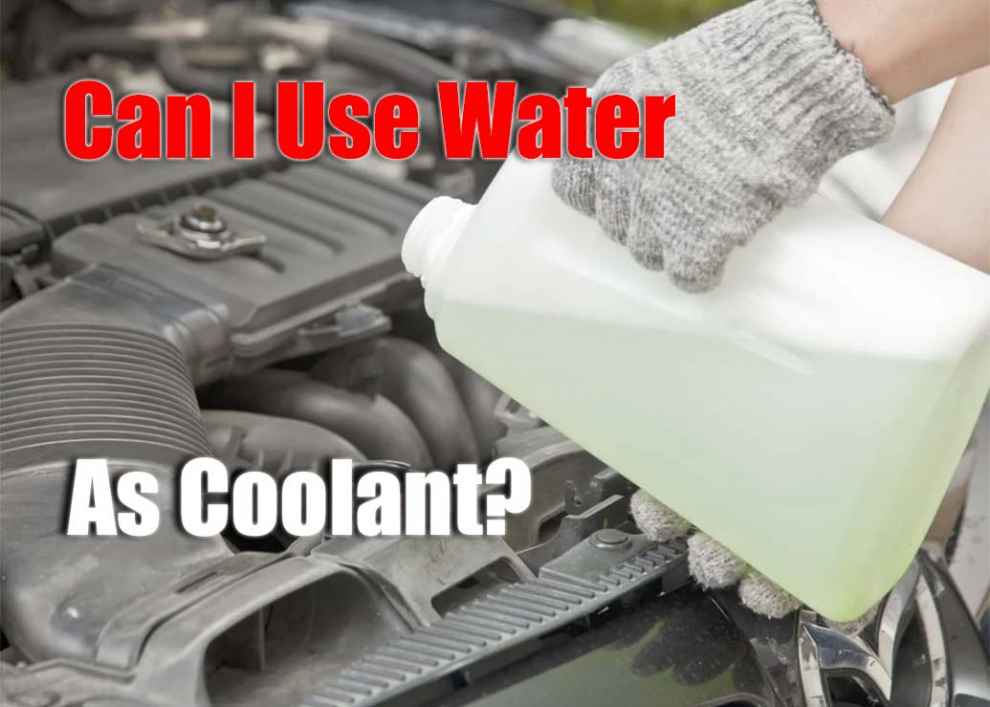The debate on whether water can be used as a substitute for coolant in a car is one that comes up often, especially in a pinch. While water is readily available and inexpensive, it is not recommended to use it as a coolant due to its inability to protect against overheating, corrosion, and mechanical damage to the engine. Coolant is specifically formulated to maintain the engine’s temperature and prevent damage, even in extreme conditions. The temporary savings of using water can lead to costly repairs due to potential engine damage.
Sometimes, when we don’t have any coolant at hand, and the levels are low, we ask ourselves: can I use water as coolant? Even if you live in an area with a warm climate, and the temperature never drops below 0 degrees Celsius, it’s highly recommended not to use water as a coolant. Why is that? Let’s find out!
So Why Can’t I Use Water as a Coolant?
Let’s dive a bit deeper and see what exactly coolant does and what it’s for. Among other things, coolant cools down the metallic components of your car’s engine. Also, in case there is a fire due to overheating, coolant can extinguish the fire. Last but not least, contrary to water, coolant provides a certain level of protection against corrosion and mechanical damage.
This is why we insist on always using coolant, no matter how tempting using a gallon of water may seem at the moment. The thing is, not just regular water, but even distilled water cannot prevent the engine from overheating. Also, as mentioned before, contrary to the coolant, water cannot protect your engine against mechanical damage. So, sooner or later, you’ll end up with a cracked engine, which equals a hefty repairs check.
Hot Water Is Bad News for the Engine

Yes, water is cheaper than coolant – no argument there. But, thankfully, even the best coolant for Jeep Wrangler is not that expensive, especially considering all the pros and cons. That’s why it’s better to pay a bit more to be safe. And when it comes to cars, there is no such thing as being too cautious. So, don’t be greedy, and make sure you treat your four-wheeled friend right.
It’s safer this way, and cheaper in the long run. That’s because using coolant instead of water will keep the engine safe and, again, you won’t have to spend big bucks on repairs.
Using Water as Coolant. Pros:
- It’s cheaper (practically free)
- It is readily available
- Water is 100 percent eco-friendly
- No need to warm up the engine
Using Water as Coolant. Cons:
- Unlike coolant, water doesn’t provide any protection against corrosion, More than that, water is corrosive to metals
- If the temperature drops below 0 degrees Celsius/32 Fahrenheit, the water will turn to ice – bad news for the motor
- When water warms up due to high engine temperature, it expands and puts pressure on the cylinders, leading to mechanical damage.
Conclusion
To sum up, it’s crucial to adhere to vehicle maintenance guidelines, specifically regarding engine care. The use of proper coolant is imperative for the health of your car’s engine. It provides protection against extreme temperatures, prevents corrosion, and avoids costly repairs. In essence, the short-term savings of using water as a coolant do not outweigh the potential long-term repair costs and the risks of severe engine damage. Antifreeze in the gas tank should also be strictly avoided, as it can lead to significant engine complications. Always follow your vehicle manufacturer’s recommendations to ensure optimal performance and safety of your automobile.

Add Comment